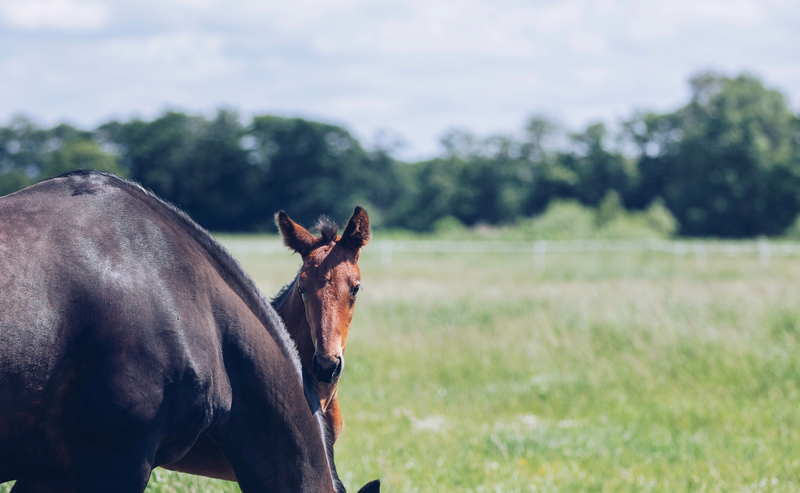The lawyer's view: top tips when buying a horse
- Hannah Bradley, The Equine Law Firm

- Jul 13, 2023
- 4 min read
Buying a new horse is often an exciting experience. In most cases the buyer finds their perfect horse. Unfortunately, on rare occasions, that is not the case. The thrill of finding the right horse can lead some prudent buyers to rush into a purchase without carrying out sufficient due diligence.

There are certain steps which a buyer can take to help minimise the risk involved in searching for a new horse and to ensure that their investment will be a good one.
1. Be clear
It is important to be transparent about your own experience and competence, and about what you want to do with the horse. Most sellers will make clear if they consider that the horse is not suited to your needs.
It will be difficult to argue that a seller has mis-sold you a horse if the horse is simply unsuitable for your own needs, and especially if you have not been clear about those needs.
2. Research
An online search of any competition horse’s name will usually reveal some results and occasionally video footage.
Many professional breeders or sellers will also have an online presence. Take care to observe how long the seller has been operating. Just because a seller is new to the industry, it absolutely does not mean that they should not be trusted. However, long established breeders and sellers often have a long-earned reputation to protect. If the horse is being sold by an agent, ask them for details of the seller, including their address.
You should also be aware that the status of the seller will dictate the legal rights which you will have if you wish to reject or return the horse.
If you are a consumer (i.e: you are not acting in the course of a business) and you buy from a trader, then you will have the right to reject the horse within 30 days of taking ownership if it transpires to be not of satisfactory quality, not fit for purpose or not as described. After 30 days have passed, you will have the right to request a repair or replacement, or if those are not possible, a refund.
If you buy the horse from a private individual, then you will only have the right to reject the horse if the seller said something which was untrue, which you relied on when deciding to buy the horse and which was a key factor in you making that decision.
3. Seek a second opinion
Take along a friend or trainer to the viewing. If you are prone to be excitable or to make decisions in haste, take along somebody who will act more rationally.
4. Veterinary input
Ask the seller if x-rays of the horse are available. Where proportionate and appropriate, have a veterinary pre-purchase inspection carried out and have bloods taken and stored. Be clear with the vet about your intended purpose for the horse.
5. Ask questions
Ask questions of the seller, in writing (such as by e-mail) and keep a record of the answers. Consider what is important to you and draft a list of questions which you would like to be answered.
Examples of questions which you may wish to ask include;
Has the horse ever shown signs of lameness, injury or other unsoundness?
Has the horse had any veterinary treatment whilst it has been in your care, other than routine treatment?
Does the horse have any history of illness or disease?
Does the horse have (or has the horse ever been treated for) any scars, swellings, bumps or marks on their legs or body?
Has the horse ever exhibited a stable vice?
Is the horse good to load, travel and stand?

6. Contract
The key terms of a sale should be recorded in writing. Memories will fade and misunderstandings arise as to what was said or agreed at the time. A signed written agreement will not change and parties will have a point of reference to minimise the prospect of any dispute.
It may not always be proportionate to invest in a professionally drafted contract of sale. However, you should take care when using “off the shelf” contracts. They may be drafted for a different jurisdiction or without reference to the relevant legal requirements. They could have unintended consequences (for example, they could be drafted to benefit the seller, not you). If something is particularly important to you then ensure that it is included in your contract.
If you are investing a significant amount of money, or if there is something unusual about the transaction, such as deferred payment, joint ownership or if you are buying from abroad then wherever possible you should seek the advice of an equine solicitor.
7. Insurance
If you decide to purchase the horse, you should consider obtaining a policy of insurance (if one is available on reasonable terms) to take effect from the date when you purchase the horse. Don’t wait until the horse is in your possession, because if he is injured in transit to you, the risk lies with you. The change in environment is also a high-risk time when a horse is more likely to be injured or fall ill.
Hannah Bradley is a Solicitor at The Equine Law Firm
.png)







Comments